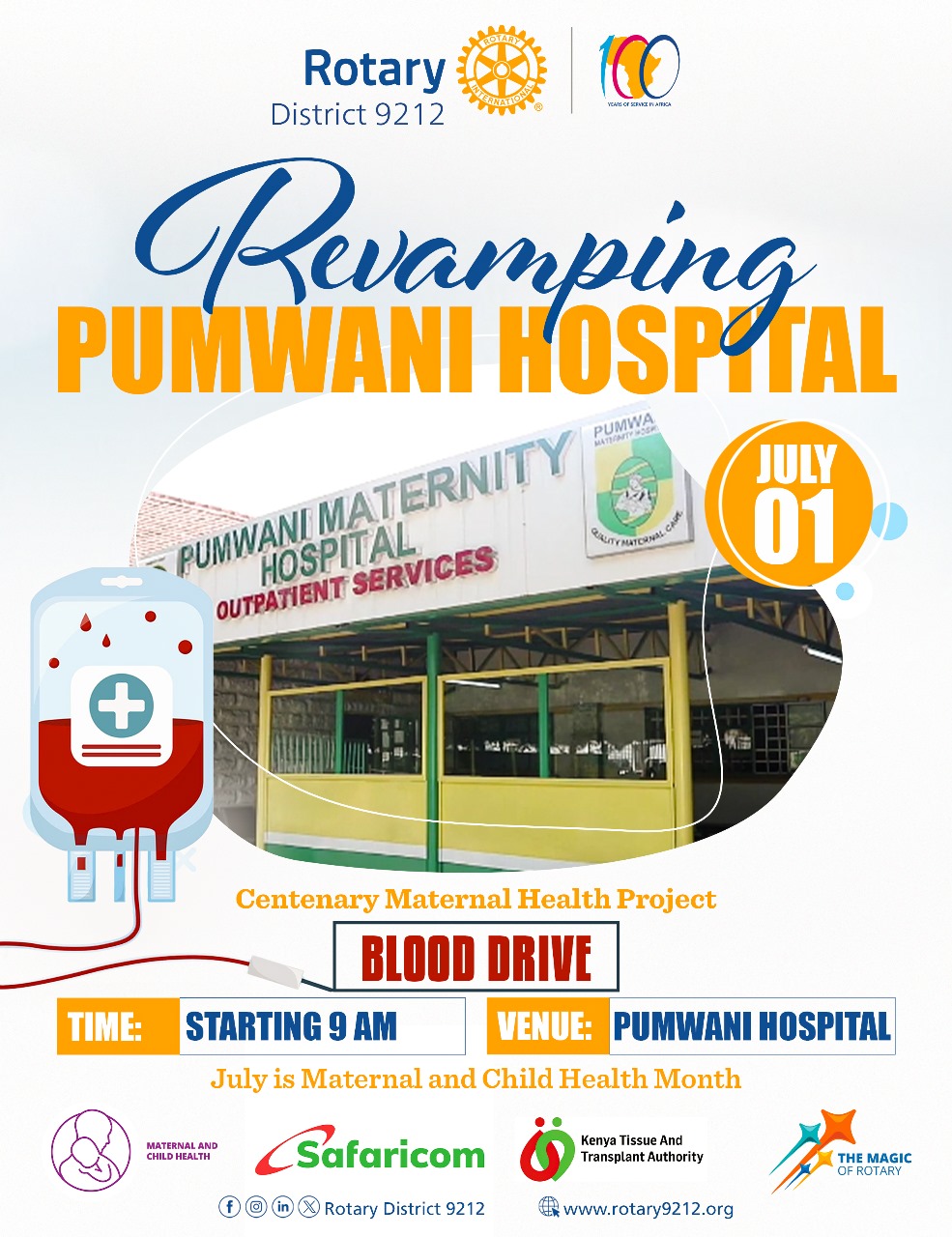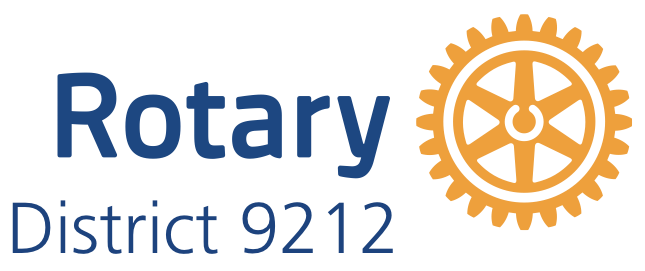Kenyans to Donate Bonga Points to Support Rotary District 9212 Maternal Health, Blood Bank Projects

By Eric Ombok
Kenya’s largest company, Safaricom Plc, has partnered with Rotary District 9212 to improve maternal and child health at Pumwani Maternity Hospital, and undertake a year-long blood donation campaign to improve the country’s blood reserves and storage.
Rotary Club of Nairobi Connect and Rotary Club of Milimani will spearhead the project, which is the first one under the District’s centenary celebration initiatives. To finance the project, Safaricom will enable its customers to donate their loyalty points (Bonga Points) to Rotary. The goal is raising the equivalent of 500 million shillings through Bonga Points donations.
Renovations and upgrades at Pumwani Maternity Hospital are estimated to cost about 100 million shillings, while the blood Donation Campaign will require approximately 10 million shillings and another 150 million shillings for construction and equipping of two blood banks.
“This proposed initiative not only addresses a critical healthcare need but also engages Safaricom’s customer base in a meaningful and impactful way,’’ according to the company. “We are confident that with Safaricom’s support, we can significantly improve maternal and child health outcomes in Nairobi, spread to three nearby counties, and set a precedent for future collaborative efforts.’’
This project also includes a year-long blood donation campaign in partnership with the Kenya Tissue and Transplant Authority to surpass their national target for the fist time, and the establishment of two blood banks.
“As Rotary celebrates 100 years of impactful service in Africa, we aim to mark this milestone with a flagship project dedicated to improving maternal and child health at Pumwani Maternity Hospital in Nairobi as a national pilot,’’ Rotary District 9212 Governor Joe Kamau said.
The outcome of the project includes elevating the newborn unit, upgrading the labour ward, theatre facilities, expansion of the human milk bank and upgrading the laboratory. This will require procuring modern incubators, enhancing the hospital’s warming systems, increasing and upgrading the theatre facilities, upgrading and expanding the human milk bank and establishing a mother-and-child care centre.
Maternal and child health
Maternal and child health remains a critical issue in Kenya, with high maternal and neonatal mortality rates largely due to preventable causes. Pumwani Maternity and referral Hospital, as a major maternity and referral centre, notes that the monthly crude mortality rate is at an average of 10% with mortalities among the preterm and low birth weight newborns contributing to 66% of these deaths.
Despite its long-standing presence, the hospital, which was established 97 years ago has had minimal expansion over the years and still operates in old buildings. This becomes a cause for concern considering the hospital receives an average of 317,169 patients annually and conducts an average of 18,588 deliveries every year, while having only 354 bed capacity available.
“This clear disparity between patient demand and existing infrastructure leads to potential issues such as overcrowding, longer wait times, and compromised patient care,’’ according to the project partners. “Improving the newborn capacity in this hospital will be one of the key focus of this initiative, which will be a pilot project, where the best practices will be replicated in other major maternity hospitals in different counties in Kenya.’’
Blood Donation Campaign
Blood reserves in Kenya has been a pain point with the current inability to meet the ever-growing demand in the country. While the availability of safe blood is crucial in managing complications during childbirth and treating various conditions affecting mothers and children, the other demand areas include accidents and emergencies, urgent surgeries, organ transplants, cancer patients in need of chemotherapy and specialized sickle cell surgeries.
Despite a national target of 547,910 units for both routine medical requirements and emergencies, only 254,519 units have been collected so far, representing 46% of the target. This shortfall poses significant risks to patient care, particularly for those requiring urgent and regular transfusions.
The partnership with Kenya National Blood Transfusion Service (KNBTS) seeks to promote regular blood donation and hit the country’s target for the first time by organizing blood drives and awareness campaigns throughout the year. Over years, KNBTS has been leading the blood donation campaigns through its network of five regional blood banks. The agency is yet to achieve the World Health Organization prescribed target of 1% blood reserve of the country’s population.
“This initiative will ensure that a lot of donation sensitization is undertaken to encourage blood donation, and also boost the national storage capacity by building two blood banks in conjunction with the Authority,’’ according to the project partners.



